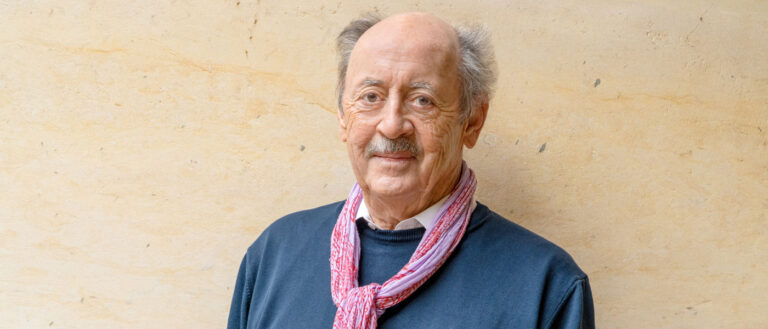Speaker series continues with former U.S. Poet Laureate Billy Collins
One of the nation’s longest consecutive-running speaker series, Case Western Reserve University’s Think Forum offers a 2024-2025 season with award-winning authors, journalists and government officials. Having kicked off in August at Fall Convocation, the series will run through May as speakers share insights and perspectives on culture, the arts and an ever-evolving world.
Previously known as the Town Hall of Cleveland, the series has long featured a robust and diverse selection of political leaders, historians, journalists and cultural provocateurs ranging from Winston Churchill and Alex Haley to Barbara Walters and the Capitol Steps.
The 2024–25 season continues Tuesday, Dec. 3, with former U.S. Poet Laureate, Billy Collins, whose newest book, Water, Water: Poems, will be released later this month.
Collins’ work has appeared in a variety of periodicals including The New Yorker, The Paris Review and The American Scholar. He has published twelve collections of poetry that have led to numerous awards, including the Mark Twain Award for Humor in Poetry. Collins was named New York State Poet Laureate from 2004–2006 after serving as the Poet Laureate of the United States from 2001–2003.
The lecture will begin at 7:30 p.m. at The Milton and Tamar Maltz Performing Arts Center at the Temple-Tifereth Israel at Case Western Reserve University. It is free and open to the general public, but registration is required.
On Jan. 24, the Think Forum series will present the Martin Luther King Jr. Convocation, “Finding My Voice: A Conversation with Valerie Jarrett.” Jarret is chief executive officer of the Obama Foundation and former senior advisor to President Barack Obama.
The Millis Lecture, on Mar. 20, “Preparing You For a World Dominated by Technology and AI,” will feature author and journalist, Kevin Roose.
The season will conclude with the F. Joseph Callahan Distinguished Lecture, featuring Pulitzer-prize winning author Hua Hsu for “A State of Becoming: What it Means to Tell Asian American Stories.”

